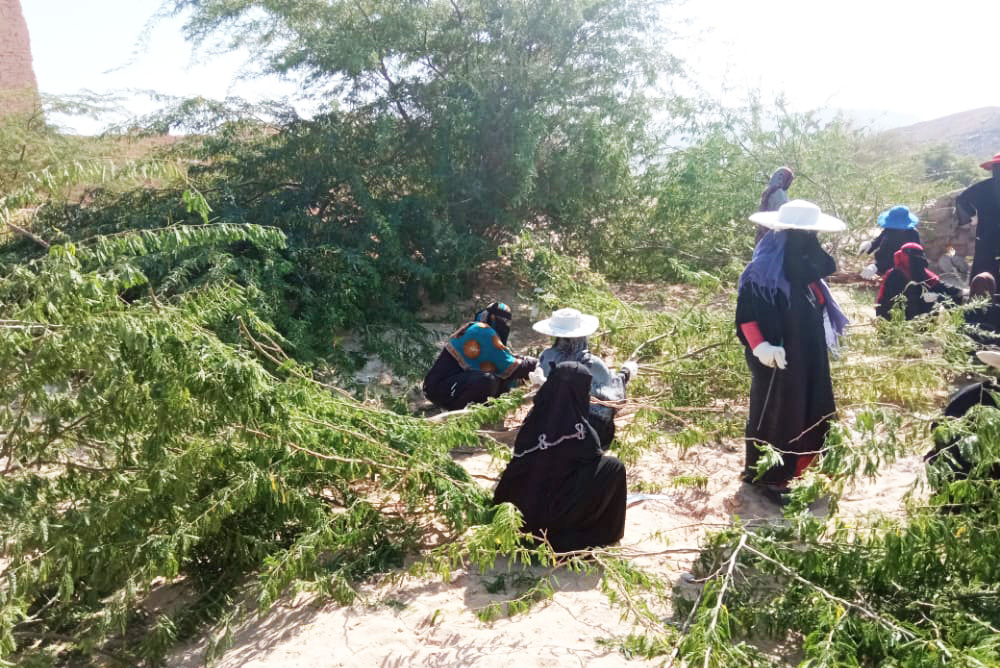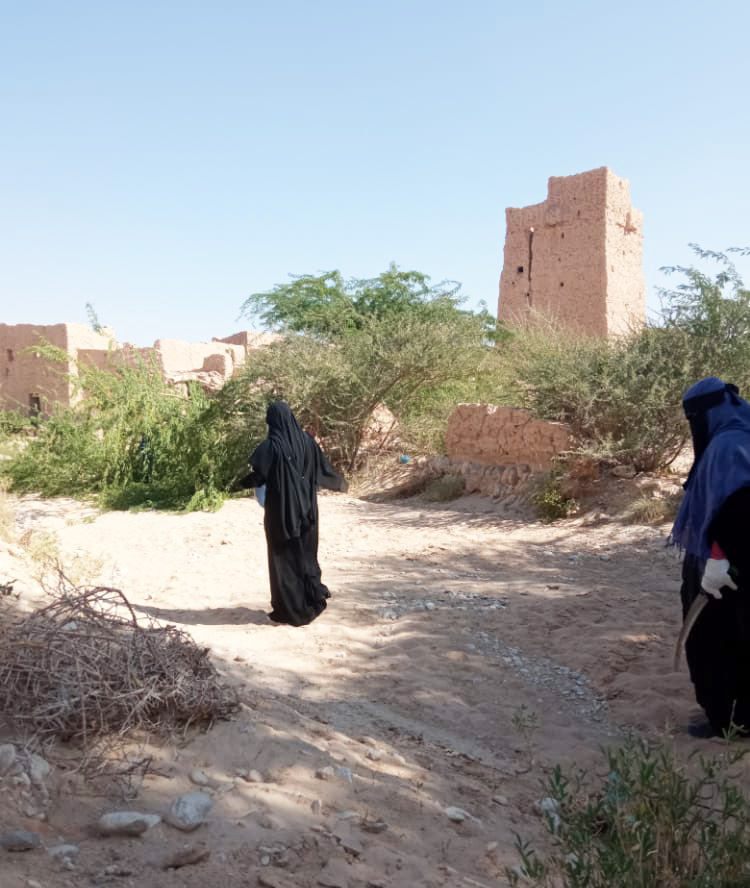A women resident of Ba-Yahia region of the governorate of Shabwah, Barakah Salim Yehia, 50 years old, is the head of the household. She has five children-two girls and two boys – who are all enrolled in preparatory and secondary schools. She lives off her only source of livelihood – working in the land she inherited from the children’s father. Hajja Barakah is well-experienced in livestock breeding, but she lacks the necessary fund to buy some goats and sheep for her project.
Barakah said she met five times with representatives of various organizations hoping she would get help to improve her livelihood. Although she didn’t get any help, she didn’t lose hope. One day as she was attending a woman gathering, she heard that women will be hired to work in a project to rehabilitate the rainwater irrigation channels in her area. She said: “I went the next morning to confirm what I heard from a teacher in that gathering. I met with the beneficiaries committee, the project contractor and the project’s consultant, Anisa. Anisa invited me to a training session for a group of women from the area along with some IDP women.

30 Women Hired
PWP implemented the Ba-Yehia Rainwater irrigation channel under ESPECRP, financed by IDA of the World Bank in partnership with UNDP. The project aims at promoting food security for the Yemeni people and the creation of work opportunities for unskilled labor, especially women to improve their livelihoods.

She Earned Enough to Buy Sheep
Following an awareness training on the serious impact on agriculture of the Sesbania plant, we were trained on how to remove it, Barakah Said. “The Contractor offered us the opportunity to remove the plant from channel and banks. I got excited with the idea, and I entered a contract where I hired 30 other women from the area. We worked the equivalent of 300 days in the project. I saved some money to buy five female goats and sheep with three already pregnant. This is a harbinger that makes me happy. It means my capital will double. Additionally, I will be getting milk and have a hedge that I can sell if I need money. This has created stability in my livelihood that would help me keep my children in school”, she added.
Increased Wages
Barakah is demanding increased wages for women who perform work and to expand the opportunities to include as many women as possible in implementing projects such as this. She said the situation is so hard for many, given the overall situation in the country where women bear the brunt.
In her simple words, Hajjah Barakah expressed appreciation for the opportunity made available by those who financed the project. She said this has left a major impact on the lives of all women who worked in it by helping them to meet some of their needs.




